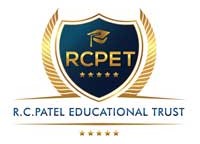Code of Ethics for Research
The Institute has Research Committee with an objective to promote & encourage the research and Development activities for the social in large & in particular benefit of the academic progress. The Committee consists of the committee of interested faculty members of the Institute. The cell provides a supportive environment to achieve excellent out comes from students and teaching faculties.
Objectives :
- To allow the access to the Computer labs after College hours so as to utilize the facilities.
- To allow to access library facilities after College hours.
- o To grant funding for registering the participation in International/National conferences & workshops.
Code of Ethics in Research
Research ethics offersadvice for the responsible conduct of research. In addition, it teaches and monitors scientists conducting research to certify a high ethical standard. The following is a common summary of some ethical principles:
- Honesty : Honestly report data, results, methods and procedures, and publication status. Don’t fabricate, falsify, misrepresent data, etc.
- Objectivity : Strive to avoid bias in experimental design, data analysis, data interpretation, peer review, personnel decisions, grant writing, expert testimony, and other research aspects.
- Integrity : Keep your promises and agreements; act with seriousness; try for consistency of thought and action.
- Carefulness : Escape careless errors and negligence; cautiously and critically inspect your own work and the work of your peers. Keep worthy records of research happenings.
- Openness : Share data, results, ideas, tools, resources. Be open to condemnation and novel ideas.
- Respect for Intellectual Property : Honor copyrights, patents, other forms of intellectual property. Don’t utilize unpublished data, procedures, or results without consent. Provide credit where credit is due. Never plagiarize.
- Confidentiality : Guard confidential communications, like papers or grants submitted for publication, people records, trade or military secrets, and patient records.
- Responsible Publication : Broadcast in order to advance research and scholarship, not to spread just your own career. Stop wasteful and duplicative publication.
- Responsible Mentoring : Support to educate, mentor, and advise students. Encourage their welfare and permit them to make their own assessments.
- Respect for Colleagues : Respect your associates and treat them honestly.
- Social Responsibility : Strive to stimulate social good and prevent or mitigate social harms through research, public education, and advocacy.
- Non-Discrimination : Avoid discrimination against associates or students on the basis ofrace, ethnicity, gender or other factors that aren’t related to their scientific competence and integrity.
- Competence : Maintain and increase your own professional competence and expertise through lifelong education and learning; take steps to encourage competence in science as a whole.
- Legality : Know and obey relevant rules and institutional and governmental policies.
- Animal Care : Show appropriate respect and care for animals when using them in research. Don’t conduct needless or poorly designed animal experiments.
- Human Subjects Protection : During research on human subjects, reducedestructions and risks and maximize benefits; respect human self-respect, autonomy and confidentiality.

